Martina Purdy: I felt better served praying for politicians than grilling them
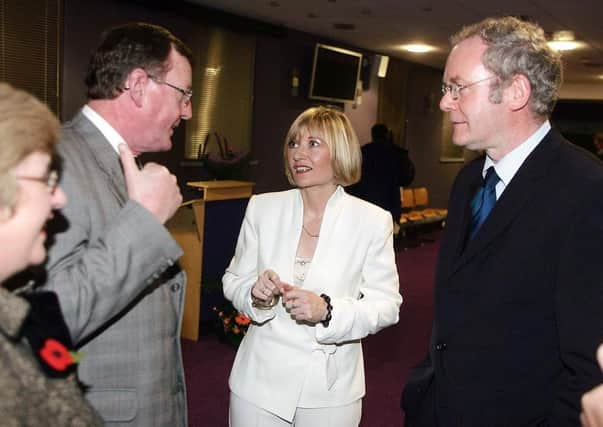

Martina Purdy said she does not regret her time in journalism, during which she rose to become one of the top political correspondents in the Province.
However she eventually came to the decision that she would be better served praying for Northern Ireland’s politicians rather than grilling them over their actions.
Advertisement
Hide AdAdvertisement
Hide AdShe left the BBC to become a nun in 2014 but it was a chapter in her life that she did not get to finish.
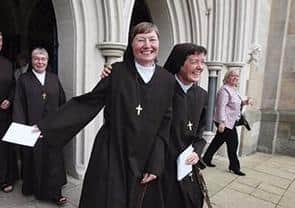

Instead she is now a lay person who has found a new mission spreading the word of God in Downpatrick.
When Martina was just five her parents emigrated from NI to Toronto, though as a young woman she had a thirst to get back to Ulster.
She said: “My parents had three kids under five or six and the Troubles were kicking off so like a lot of families we left Northern Ireland.
Advertisement
Hide AdAdvertisement
Hide Ad“I came back at the first opportunity. I came back in 1987 after I graduated university and before I started journalism school.
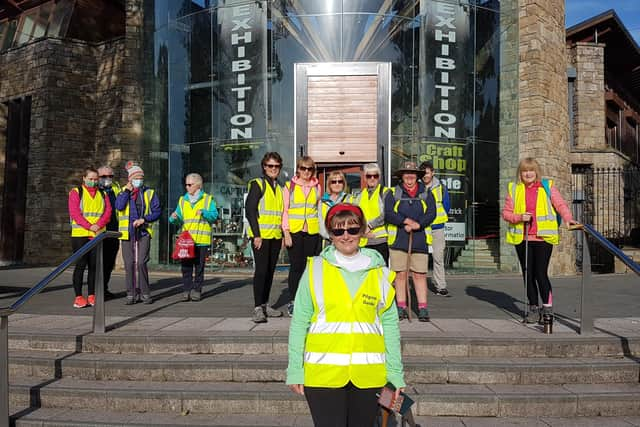

“I worked in the front office of the Irish News for 18 months, then I went back and finished journalism school. I came back here permanently in 1991 or 1992. Most of my life has been here but my formative years were in Canada.
“I worked for the Toronto Star in their internship for the summer, but I thought Belfast was a more interesting place to be a journalist.
“In Toronto the media were all over anything that happened and it would be beaten to a pulp, whereas here in Belfast a terrible thing would happen but there wouldn’t be hardly any time to analyse before the next tragedy.
Advertisement
Hide AdAdvertisement
Hide Ad“Canada has been called dull by travel writers. I don’t think it’s dull but it’s not exciting like America. The news cycle at the time would have reflected that.”
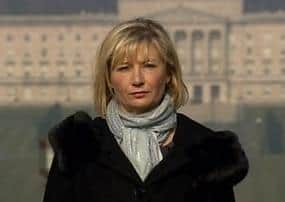

When Martina came back to Northern Ireland she did some freelance shifts before getting a job at the Irish News as their business correspondent before moving to the Belfast Telegraph as business editor.
She asked to move onto the politics desk when Vincent Kearney moved to the Sunday Times.
She said: “I became political correspondent for the Telegraph on April 1, 1996, which looking back is kind of appropriate – April Fools Day.
Advertisement
Hide AdAdvertisement
Hide Ad“It was a good time to start being a political correspondent because within two years we had the [Good Friday] Agreement. The joke is that that was the difference I made.”
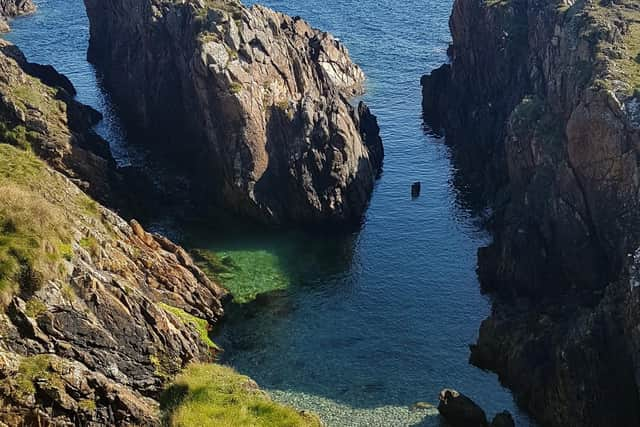

Martina followed fellow Belfast Telegraph political correspondent Mark Simpson to the BBC in 1999.
Of her new role she said: “It made the Bel Tel seem like a part time job. I was working very long hours to round the clock deadlines. Again it was interesting but it was a baptism of fire.
“I preferred print, I wasn’t really bothered if I got the job at the BBC, but I did so I went with it. I enjoyed it, it was a good change, a new challenge. I’ve been very blessed.
Advertisement
Hide AdAdvertisement
Hide Ad“You do get used to it, but it’s high pressure. I learnt a lot on the job. I think I was there 10 years before I got a training course telling me where to look on the camera.
“It can be nerve-wracking because you’re not just speaking to one person, you’re speaking to a whole lot of different ears. You have to be very clear, it is a skill, but it’s like anything, you get better at it as time goes on.
“I think I was just getting good at it when I left in 2014.”
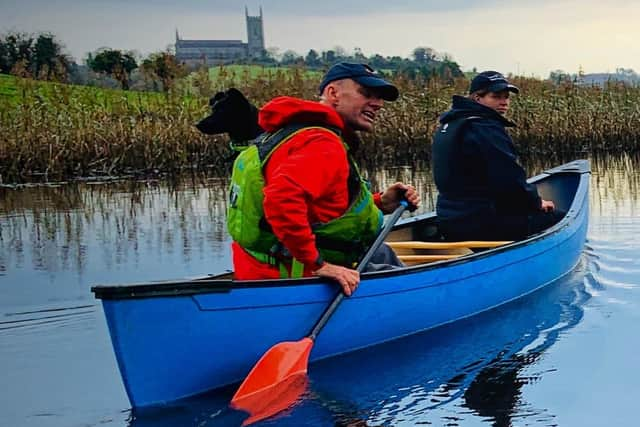

Of her career change she said: “When my colleagues were told I was going to quit to become a nun they all laughed and went back to work. A lot of people who knew me well maybe wouldn’t have been surprised.”
Advertisement
Hide AdAdvertisement
Hide AdShe said: “I think I fought this call because it just wasn’t something that I thought I’d want to do, or maybe I couldn’t see how it was possible.
“I think maybe the [changing point] for me was when I realised I’d rather pray for these people (politicians) than question them.
“I suppose I realised that I’d found something better than being on television talking about politics, I’d rather be at the feet of Jesus adoring him.
“I found that my life was rushing from one press conference to another. I wanted to stop and pray but I didn’t have time. I was being called to a life of prayer.
Advertisement
Hide AdAdvertisement
Hide Ad“I just felt that I was meant to do something different, something more meaningful. Not that journalism isn’t a very noble profession, but I didn’t have the heart for it any more.”
Looking back at the underlying causes of the Troubles, the former BBC political correspondent said: “My analysis would be that the Troubles broke out because our political and cultural ties were stronger than our ties to Christ.
“Had people really been tied to Christ and His message of love and peace and reconciliation that would have overcome the other problems. People had political allegiances and cultural allegiances that ultimately were stronger.
“Peace is not a process, true peace is a person – a person that requires transformation.
Advertisement
Hide AdAdvertisement
Hide Ad“I could see that happening slowly in some people, but in other people perhaps it’s more of a tactic. Sometimes if peace is a tactic it will fail.”
In 2005 Martina wrote a book called Room 21, taking its name from the room where the Northern Ireland Executive met.
Her aim was to chart the journeys of those who went to the chamber – politicians like David Trimble, Martin McGuinness and Gerry Adams – and expose the human story behind the peace process.
She said: “I never knew Martin McGuinness during the Troubles, I met him during the peace process.
Advertisement
Hide AdAdvertisement
Hide Ad“I remember when I was writing my book, I asked an IRA hardliner who is the real Martin McGuinness, is it this pleasant minister who pours the tea or is it this cold killer? He said he’s the ruthless IRA man.
“Then I asked David Ervine which one is he. He said he’s both those things. People are complicated. He was ruthless when required and he was a peacemaker when required.”
Martina said: “People are never one thing. I suppose in the media it’s easy to put people in one box and label them. With politicians you see a one dimensional image on TV, that isn’t always the reality.”
Looking to the future Martina said: “I meet people now who don’t have the same perspective as they had 20 years ago and that’s a good thing.
Advertisement
Hide AdAdvertisement
Hide Ad“But in the midst of violence it’s very difficult to have a rational thought because you’re frightened, when people are frightened or threatened they don’t think as clearly. That applies to everyone.
“In the absence of violence – which was probably a better description of the early days of the peace process – it can create the possibility of making peace.”
Reflecting on her five years at the Sisters of Adoration convent Martina said: “The Sisters of Adoration had grown very small and fragile, the structures were not there to bring us to formation.
“It’s a bit like having a lot of trainee journalists but you haven’t got editors and producers.
Advertisement
Hide AdAdvertisement
Hide Ad“We prayed our vocations would be sustained but it wasn’t to be.
“That was a shock to the system, but in obedience, the decision was taken by the sisters that the best thing was to release us. It means that congregation will die, I don’t know how quickly but they can’t bring in new life. It was founded in Paris around 1850 so it lasted 170 years, but that’s normal in the church, there are cycles to congregations.”
She said: “It takes a bit of time to recover from what happened. You have to get your equilibrium and discern what God is asking of you.”
Martina is now a lay member of St Patrick’s Catholic Church, Downpatrick: “I was five years in the convent and two years in vows. I wasn’t able to renew my vows then so that meant I was laicised.”
Advertisement
Hide AdAdvertisement
Hide AdBack in 1991 when Martina started out as a journalist in Northern Ireland she could hardly have predicted that almost 30 years later she’d be working as a spiritual tour guide having spent five years as a nun.
That said Martina has always had God in her life.
She said: “I couldn’t go back to being a political journalist, even if I wanted to, and I don’t.
“I knew when I left the BBC there was no way back.
“I could still go back to a convent. I left not of my own choice but I have to accept this is what God is doing now.
“I landed in holy ground in Downpatrick, the place where St Patrick lived and died and began his mission. I do see that there is some work for me here, I don’t know for how long.”
Advertisement
Hide AdAdvertisement
Hide AdMartina lives in Downpatrick with Elaine Kelly who joined the Sisters of Adoration as a nun at the same time as her.
“They are both active members of St Patrick’s parish through the church’s magazine and Bible mission.
During lockdown the pair stumbled upon the idea of the St Patrick’s Way pilgrimage tour: “We couldn’t go to Newcastle where we’d normally get in the car and walk up the mountains. We were forced to explore Downpatrick and found all these amazing places that were related to St Patrick. We thought wouldn’t it be good to have a camino (walk) here that links them.
“We mapped out a 17-mile walk. It’s not for the faint hearted, we recommend it’s done over two parts.”
Advertisement
Hide AdAdvertisement
Hide AdMartina said they had taken around 300 people on the spiritual walking tour, organised through the St Patrick’s Centre and have recently designed a new coastal walk with a canoeing experience.
The pilgrimage takes in sites including the Mound of Down, where Battle of Downpatrick took place, Inch Abbey established by John De Courcy where the legend of the snakes was written, and Saul where Patrick converted local chieftain Dichu.
Martina said: “We have a lot to offer in Downpatrick. Through St Patrick’s Centre we can see that people are interested in staycations, some people want praycations, they like the spirituality of it. Some people just want the experience of a good day out. That’s what we try to do.
“Sometimes I look at my five years in the convent – which I’d do again because it was the best time of my life – as training and learning to be able to do what I do now which is to talk and write about the work of God.”
Advertisement
Hide AdAdvertisement
Hide Ad“Somebody might say to me you could have just left the BBC and become a spiritual writer. But I couldn’t have because I wouldn’t have the knowledge of Christ that I have now being steeped in prayer for five years.”
A message from the Editor:
Thank you for reading this story on our website. While I have your attention, I also have an important request to make of you.
With the coronavirus lockdown having a major impact on many of our advertisers - and consequently the revenue we receive - we are more reliant than ever on you taking out a digital subscription.
Subscribe to newsletter.co.uk and enjoy unlimited access to the best Northern Ireland and UK news and information online and on our app. With a digital subscription, you can read more than 5 articles, see fewer ads, enjoy faster load times, and get access to exclusive newsletters and content. Visit https://www.newsletter.co.uk/subscriptions now to sign up.
Advertisement
Hide AdAdvertisement
Hide AdOur journalism costs money and we rely on advertising, print and digital revenues to help to support them. By supporting us, we are able to support you in providing trusted, fact-checked content for this website.
Alistair Bushe
Editor
